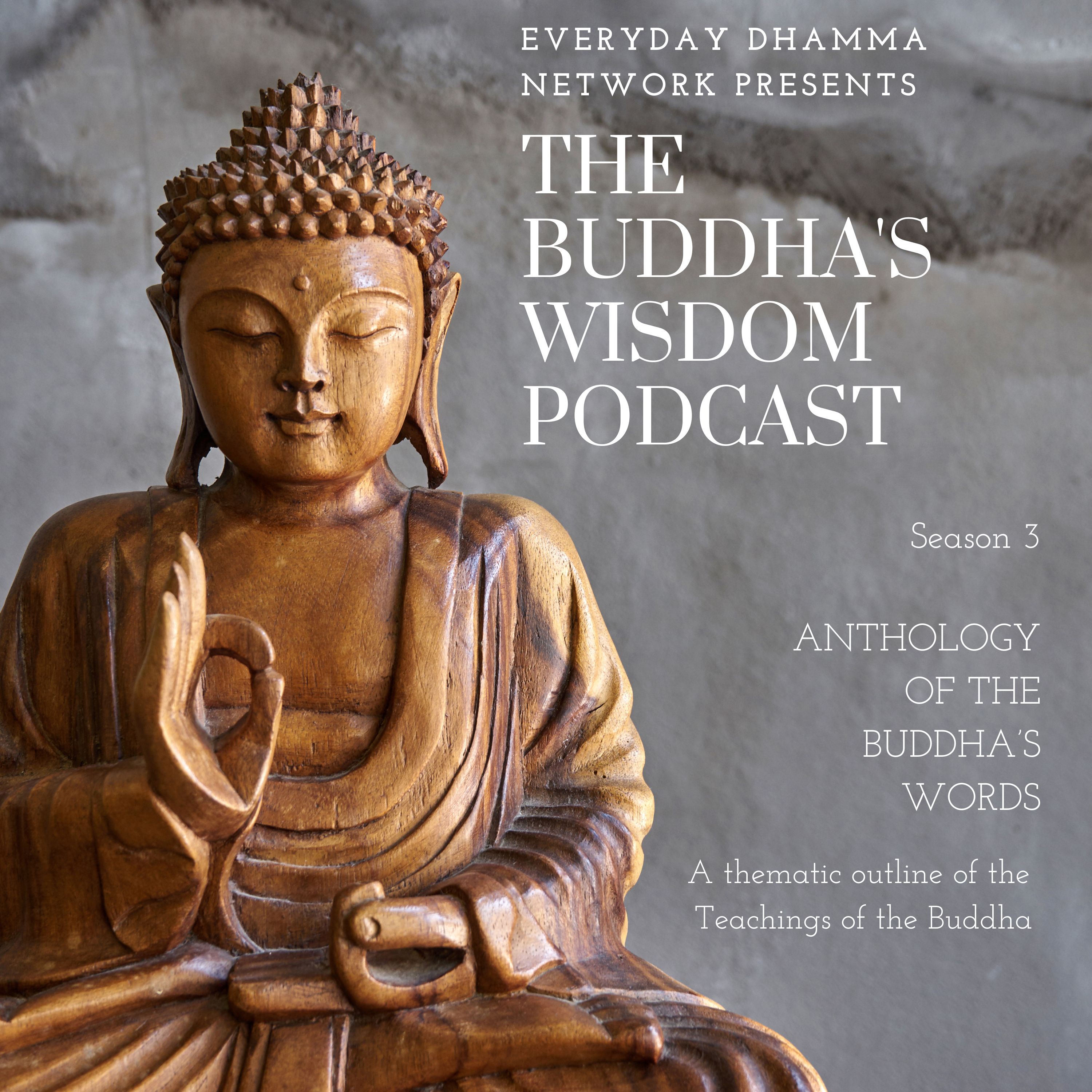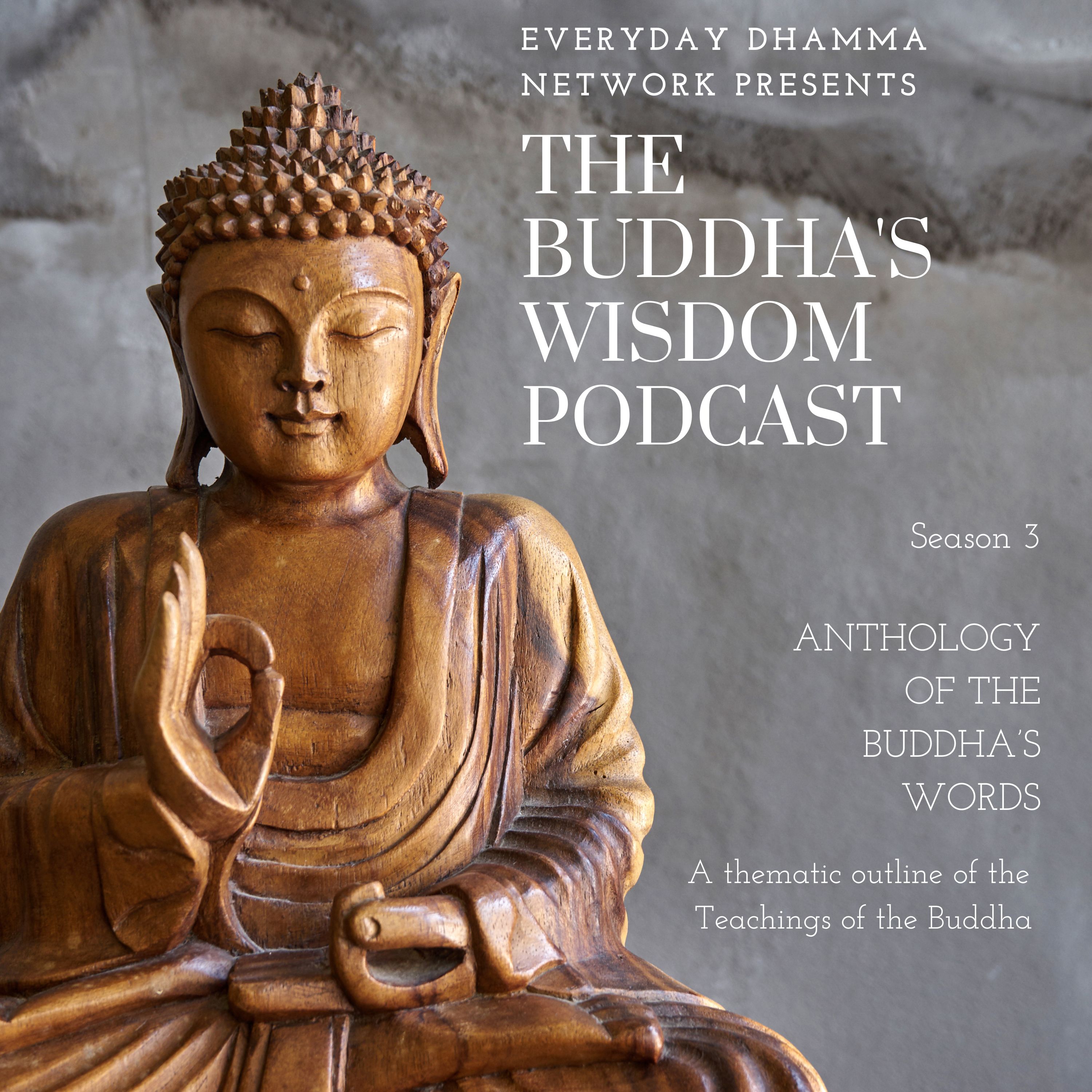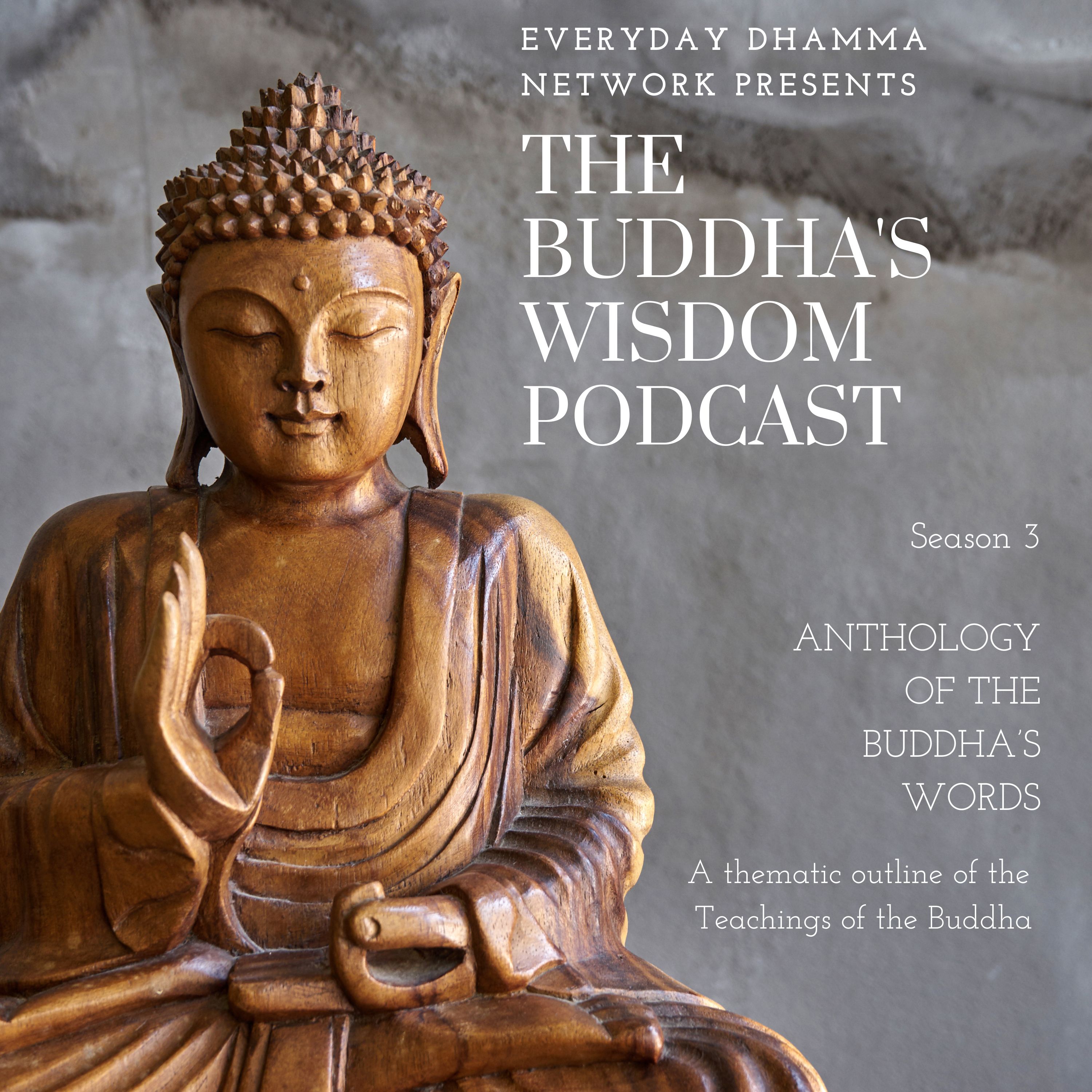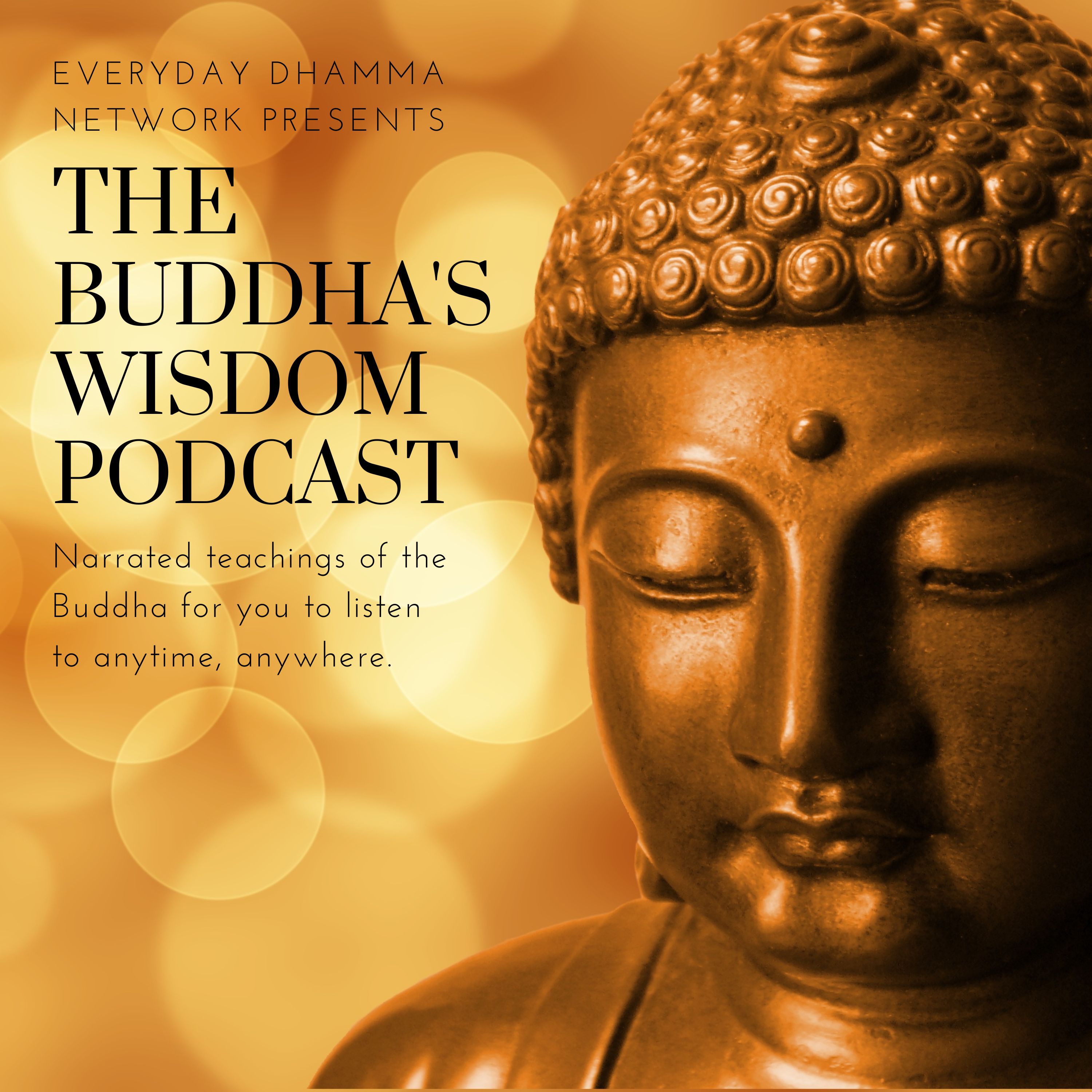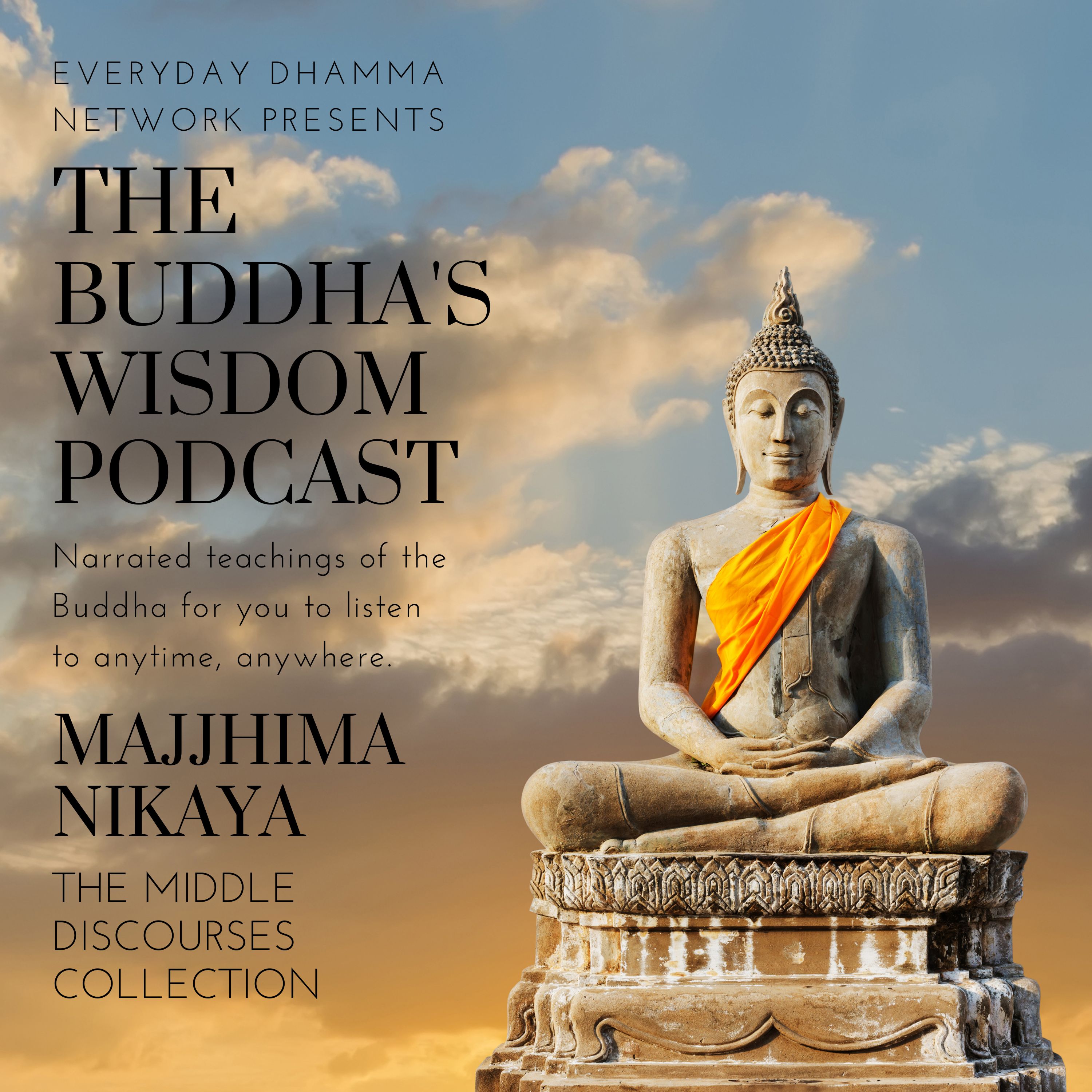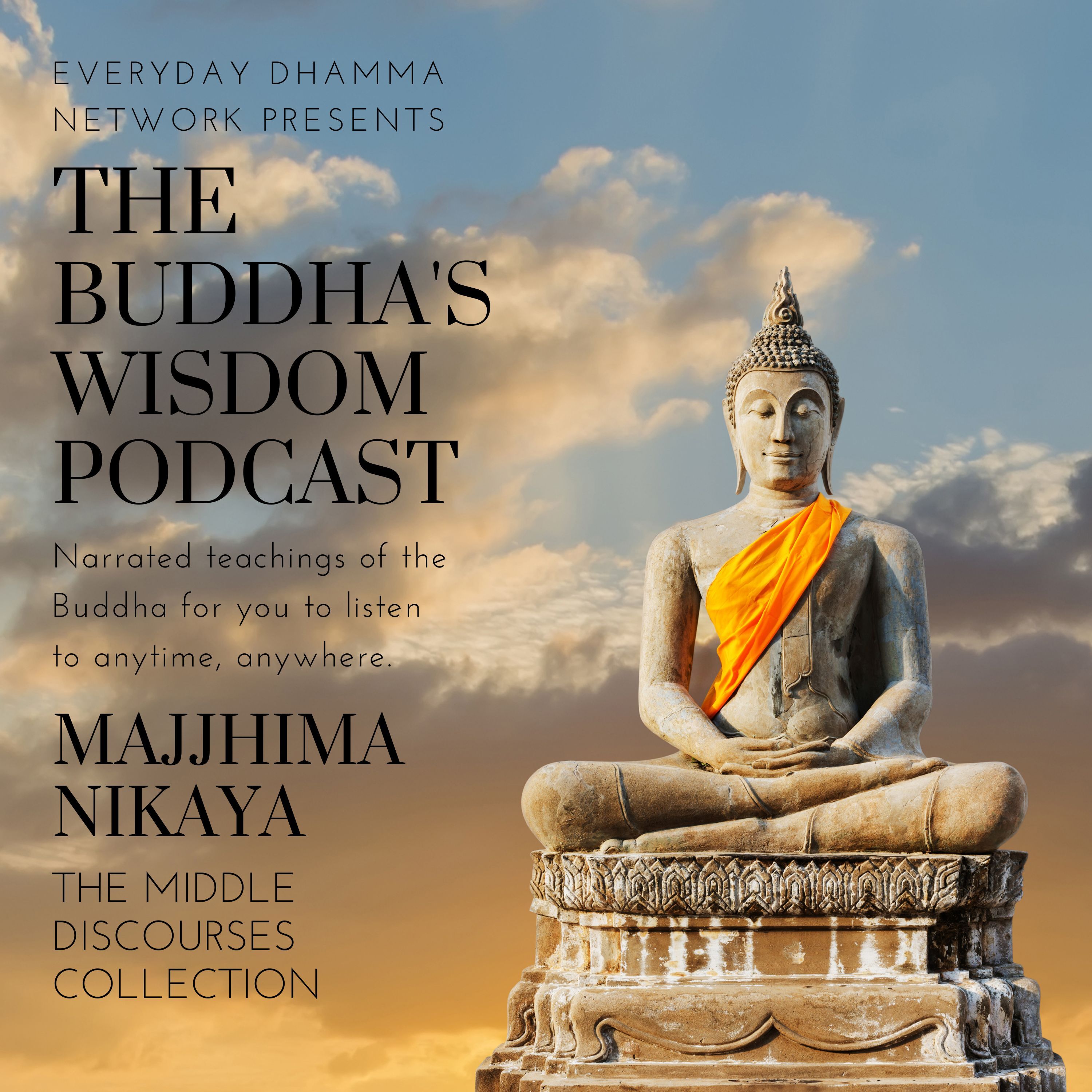Episode Transcript
## Sutta 1 - The Five Precepts
“Mendicants, there are these eight kinds of overflowing merit, overflowing goodness. They nurture happiness and are conducive to heaven, ripening in happiness and leading to heaven. They lead to what is likable, desirable, agreeable, to welfare and happiness. What eight?
Firstly, a noble disciple has gone for refuge to the Buddha. This is the first kind of overflowing merit …
Furthermore, a noble disciple has gone for refuge to the teaching. This is the second kind of overflowing merit …
Furthermore, a noble disciple has gone for refuge to the Saṅgha. This is the third kind of overflowing merit …
Mendicants, these five gifts are great, primordial, long-standing, traditional, and ancient. They are uncorrupted, as they have been since the beginning. They’re not being corrupted now nor will they be. Sensible ascetics and brahmins don’t look down on them. What five?
Firstly, a noble disciple gives up killing living creatures. By so doing they give to countless sentient beings the gift of freedom from fear, enmity, and ill will. And they themselves also enjoy unlimited freedom from fear, enmity, and ill will. This is the first gift that is a great offering, primordial, long-standing, traditional, and ancient. It is uncorrupted, as it has been since the beginning. It’s not being corrupted now nor will it be. Sensible ascetics and brahmins don’t look down on it. This is the fourth kind of overflowing merit …
Furthermore, a noble disciple gives up stealing. … This is the fifth kind of overflowing merit …
Furthermore, a noble disciple gives up sexual misconduct. … This is the sixth kind of overflowing merit …
Furthermore, a noble disciple gives up lying. … This is the seventh kind of overflowing merit …
Furthermore, a noble disciple gives up beer, wine, and liquor intoxicants. By so doing they give to countless sentient beings the gift of freedom from fear, enmity, and ill will. And they themselves also enjoy unlimited freedom from fear, enmity, and ill will. This is the fifth gift that is a great offering, primordial, long-standing, traditional, and ancient. It is uncorrupted, as it has been since the beginning. It’s not being corrupted now nor will it be. Sensible ascetics and brahmins don’t look down on it. This is the eighth kind of overflowing merit …
These are the eight kinds of overflowing merit, overflowing goodness. They nurture happiness and are conducive to heaven, ripening in happiness and leading to heaven. They lead to what is likable, desirable, agreeable, to welfare and happiness.”
AN 8:39
## Sutta 2 - The Uposatha Observance
“Mendicants, the observance of the Uposatha with its eight factors is very fruitful and beneficial and dazzling and bountiful. And how should it be observed? It’s when a noble disciple reflects: ‘As long as they live, the perfected ones give up killing living creatures, renouncing the rod and the sword. They are scrupulous and kind, and live full of sympathy for all living beings. I, too, for this day and night will give up killing living creatures, renouncing the rod and the sword. I’ll be scrupulous and kind, and live full of sympathy for all living beings. I will observe the Uposatha by doing as the perfected ones do in this respect.’ This is its first factor.
‘As long as they live, the perfected ones give up stealing. They take only what’s given, and expect only what’s given. They keep themselves clean by not thieving. I, too, for this day and night will give up stealing. I’ll take only what’s given, and expect only what’s given. I’ll keep myself clean by not thieving. I will observe the Uposatha by doing as the perfected ones do in this respect.’ This is its second factor.
‘As long as they live, the perfected ones give up unchastity. They are chaste, set apart, avoiding the vulgar act of sex. I, too, for this day and night will give up unchastity. I will be chaste, set apart, avoiding the vulgar act of sex. I will observe the Uposatha by doing as the perfected ones do in this respect.’ This is its third factor.
‘As long as they live, the perfected ones give up lying. They speak the truth and stick to the truth. They’re honest and dependable, and don’t trick the world with their words. I, too, for this day and night will give up lying. I’ll speak the truth and stick to the truth. I’ll be honest and dependable, and won’t trick the world with my words. I will observe the Uposatha by doing as the perfected ones do in this respect.’ This is its fourth factor.
‘As long as they live, the perfected ones give up beer, wine, and liquor intoxicants. I, too, for this day and night will give up beer, wine, and liquor intoxicants. I will observe the Uposatha by doing as the perfected ones do in this respect.’ This is its fifth factor.
‘As long as they live, the perfected ones eat in one part of the day, abstaining from eating at night and from food at the wrong time. I, too, for this day and night will eat in one part of the day, abstaining from eating at night and food at the wrong time. I will observe the Uposatha by doing as the perfected ones do in this respect.’ This is its sixth factor.
‘As long as they live, the perfected ones give up seeing shows of dancing, singing, and music ; and attiring and adorning themselves with garlands, fragrance, and makeup. I, too, for this day and night will give up seeing shows of dancing, singing, and music ; and attiring and adorning myself with garlands, fragrance, and makeup. I will observe the Uposatha by doing as the perfected ones do in this respect.’ This is its seventh factor.
‘As long as they live, the perfected ones give up high and luxurious beds. They sleep in a low place, either a small bed or a straw mat. I, too, for this day and night will give up high and luxurious beds. I’ll sleep in a low place, either a small bed or a straw mat. I will observe the Uposatha by doing as the perfected ones do in this respect.’ This is its eighth factor.
The observance of the Uposatha with its eight factors in this way is very fruitful and beneficial and dazzling and bountiful.”
AN 8:41
## Sutta 3 - The Development of Loving-Kindness
“Mendicants, of all the grounds for making worldly merit, none are worth a sixteenth part of the heart’s release by love. Surpassing them, the heart’s release by love shines and glows and radiates.
It’s like how the radiance of all the stars is not worth a sixteenth part of the moon’s radiance. Surpassing them, the moon’s radiance shines and glows and radiates. In the same way, of all the grounds for making worldly merit, none are worth a sixteenth part of the heart’s release by love. Surpassing them, the heart’s release by love shines and glows and radiates.
It’s like the last month of the rainy season, in autumn, when the heavens are sunny and cloudless. And as the sun is rising to the firmament, having dispelled all the darkness of space, it shines and glows and radiates. In the same way, of all the grounds for making worldly merit, none are worth a sixteenth part of the heart’s release by love. Surpassing them, the heart’s release by love shines and glows and radiates.
It’s like how, at the crack of dawn, the Morning Star shines and glows and radiates. In the same way, of all the grounds for making worldly merit, none are worth a sixteenth part of the heart’s release by love. Surpassing them, the heart’s release by love shines and glows and radiates.”
It 27; 19-21
## Sutta 4 - The Four Divine Abodes
When he had spoken, Subha said to him, “Worthy Gotama, I have heard that the ascetic Gotama knows a path to company with divinity.”
“What do you think, student? Is the village of Naḷakāra nearby?”
“Yes it is, sir.”
“What do you think, student? Suppose a person was born and raised in Naḷakāra. And as soon as they left the town some people asked them for the road to Naḷakāra. Would they be slow or hesitant to answer?”
“No, worthy Gotama. Why is that? Because they were born and raised in Naḷakāra. They’re well acquainted with all the roads to the village.”
“Still, it’s possible they might be slow or hesitant to answer. But the Realized One is never slow or hesitant when questioned about the realm of divinity or the practice that leads to the realm of divinity. I understand divinity, the realm of divinity, and the practice that leads to the realm of divinity, practicing in accordance with which one is reborn in the realm of divinity.”
“Worthy Gotama, I have heard that the ascetic Gotama teaches a path to company with divinity. Please teach me that path.”
“Well then, student, listen and apply your mind well, I will speak.”
“Yes, worthy sir,” replied Subha. The Buddha said this:
“And what is a path to company with divinity? Firstly, a mendicant meditates spreading a heart full of love to one direction, and to the second, and to the third, and to the fourth. In the same way above, below, across, everywhere, all around, they spread a heart full of love to the whole world—abundant, expansive, limitless, free of enmity and ill will. When the heart’s release by love has been developed like this, any limited deeds they’ve done don’t remain or persist there. Suppose there was a powerful horn blower. They’d easily make themselves heard in the four quarters. In the same way, when the heart’s release by love has been developed like this, any limited deeds they’ve done don’t remain or persist there. This is a path to company with divinity.
Furthermore, a mendicant meditates spreading a heart full of compassion …
They meditate spreading a heart full of rejoicing …
They meditate spreading a heart full of equanimity to one direction, and to the second, and to the third, and to the fourth. In the same way above, below, across, everywhere, all around, they spread a heart full of equanimity to the whole world—abundant, expansive, limitless, free of enmity and ill will. When the heart’s release by equanimity has been developed and cultivated like this, any limited deeds they’ve done don’t remain or persist there. Suppose there was a powerful horn blower. They’d easily make themselves heard in the four quarters. In the same way, when the heart’s release by equanimity has been developed and cultivated like this, any limited deeds they’ve done don’t remain or persist there. This too is a path to company with divinity.”
MN 99 - Subha Sutta; II 206-8 (abridged)
## Sutta 5 - Insight Surpasses All
Once upon a time, householder, there was a brahmin named Velāma. He gave the following gift, a great offering. 84,000 gold cups filled with silver. 84,000 silver cups filled with gold. 84,000 bronze cups filled with gold coins. 84,000 elephants with gold adornments and banners, covered with snow gold netting. 84,000 chariots upholstered with the hide of lions, tigers, and leopards, and cream rugs, with gold adornments and banners, covered with snow gold netting. 84,000 milk cows with muslin halter and bronze pails. 84,000 maidens bedecked with jeweled earrings. 84,000 couches spread with woolen covers—shag-piled, pure white, or embroidered with flowers—and spread with a fine deer hide, with canopies above and red pillows at both ends. 8,400,000,000 delicate cloths of linen, cotton, silk, and wool. And who can say how much food, drink, snacks, meals, refreshments, and beverages? It seemed like an overflowing river.
Householder, you might think: ‘Surely the brahmin Velāma must have been someone else at that time?’ But you should not see it like this. I myself was the brahmin Velāma at that time. I gave that gift, a great offering. But at that event there was no-one worthy of a religious donation, and no-one to purify the religious donation.
It would be more fruitful to feed one individual accomplished in view than that great offering of Velāma.
It would be more fruitful to feed one once-returner than a hundred of those accomplished in view.
It would be more fruitful to feed one non-returner than a hundred once-returners.
It would be more fruitful to feed one perfected one than a hundred non-returners.
It would be more fruitful to feed one Independent Buddha than a hundred perfected ones.
It would be more fruitful to feed one Realized One, a perfected one, a fully awakened Buddha than a hundred Independent Buddhas.
It would be more fruitful to feed the mendicant Saṅgha headed by the Buddha than to feed one Realized One, a perfected one, a fully awakened Buddha.
It would be more fruitful to build a dwelling especially for the Saṅgha of the four quarters than to feed the mendicant Saṅgha headed by the Buddha.
It would be more fruitful to go for refuge to the Buddha, the teaching, and the Saṅgha with a confident heart than to build a dwelling for the Saṅgha of the four quarters.
It would be more fruitful to undertake the training rules—not to kill living creatures, steal, commit sexual misconduct, lie, or consume beer, wine, and liquor intoxicants—than to go for refuge to the Buddha, the teaching, and the Saṅgha with a confident heart.
It would be more fruitful to develop a heart of love—even just as long as it takes to pull a cow’s udder—than to undertake the training rules.
It would be more fruitful to develop the perception of impermanence—even for as long as a finger-snap—than to do all of these things, including developing a heart of love for as long as it takes to pull a cow’s udder.”
AN 9:20
